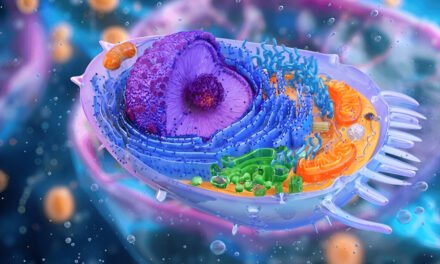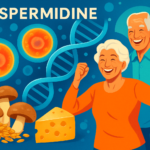Introduction
In the pursuit of a long and fulfilling life, individuals are constantly exploring various approaches to enhance their well-being and promote longevity. One such avenue of interest is taurine, an essential amino acid that plays a significant role in maintaining optimal bodily functions. Additionally, researchers have begun to uncover the potential connections between taurine and longevity. In this article, we delve into the captivating world of taurine and its impact on human health and lifespan.
The Role of Taurine in the Body
Taurine, often referred to as a conditional amino acid, is found abundantly in the brain, heart, and other tissues throughout the body. While the human body can synthesise taurine to some extent, dietary sources play a crucial role in meeting the body’s demands.
Amino Acid Composition
Taurine stands out among other amino acids due to its unique structure. Unlike standard amino acids used in protein synthesis, taurine does not participate in building proteins. Instead, it serves as a free amino acid with essential functions in various physiological processes.
Antioxidant Properties
Taurine acts as a potent antioxidant, protecting cells from oxidative stress and reducing the damage caused by free radicals. This antioxidant activity contributes to the overall well-being of the body and may play a role in mitigating the effects of ageing.
Cardiovascular Health
Studies have indicated that taurine supports cardiovascular health by promoting healthy blood pressure levels and reducing the risk of cardiovascular diseases. It aids in maintaining the proper functioning of heart muscles and blood vessels.
Taurine and Cellular Function
Neurological Benefits
Taurine has been linked to various neurological benefits. It plays a role in neurotransmission and has been associated with improved cognitive function and memory. Additionally, taurine may have a protective effect against neurodegenerative conditions.
Muscle Health
Athletes and fitness enthusiasts are often intrigued by taurine due to its potential benefits for muscle health. Taurine is known to regulate calcium levels in muscle cells, leading to enhanced muscle contractility and reduced muscle fatigue.
Taurine and Longevity: Unravelling the Connection
Studies on Life Expectancy
Researchers have conducted studies exploring the relationship between taurine consumption and life expectancy. While more research is needed, some studies suggest that taurine intake might be associated with a longer life.
Anti-Aging Properties
Taurine’s antioxidant properties make it a compelling candidate for anti-aging interventions. By neutralising free radicals and reducing cellular damage, taurine may contribute to slowing down the ageing process.
The Impact of Taurine on Age-Related Diseases
Neurodegenerative Conditions
The potential neuroprotective effects of taurine have sparked interest in its role in combating neurodegenerative diseases like Alzheimer’s and Parkinson’s. Taurine’s ability to support neurological function could hold promise in preventing or delaying the onset of these conditions.
Diabetes and Metabolic Health
Some research suggests that taurine may be beneficial in improving insulin sensitivity and blood sugar regulation. As a result, taurine could have implications for managing diabetes and promoting metabolic health.
Taurine-Rich Foods and Supplements
Natural Food Sources
Taurine is found naturally in certain foods, making it accessible through a balanced diet. Foods such as fish, meat, and dairy products are good sources of taurine.
Dietary Supplements
For individuals who may have difficulty obtaining sufficient taurine from their diet, supplements offer a convenient and reliable way to meet their needs. However, it is essential to consult a healthcare professional before starting any supplement regimen.
Taurine Dosage and Safety
Recommended Intake
The recommended daily intake of taurine varies depending on factors such as age, health status, and individual needs. For most adults, a typical dosage ranges from 500mg to 2,000mg per day.
Potential Side Effects
Taurine is generally considered safe when consumed within the recommended dosage range. However, excessive intake of taurine supplements may lead to adverse effects, such as digestive discomfort.
Combining Taurine with Other Nutrients for Optimal Longevity
Synergistic Effects
Taurine can interact with other nutrients to produce synergistic effects. For instance, combining taurine with certain antioxidants may enhance its overall benefits.
Common Combinations
Taurine is often included in dietary supplements alongside other beneficial compounds like magnesium, zinc, and B-vitamins to create comprehensive formulations that support overall health and longevity.
Lifestyle Factors and Longevity
Exercise and Physical Activity
Regular physical activity, in conjunction with a balanced diet and proper supplementation, can significantly contribute to an individual’s longevity and overall well-being.
Stress Management
Stress can accelerate the ageing process and have detrimental effects on health. Implementing stress management techniques, such as meditation and mindfulness practices, can positively impact longevity.
Conclusion
In recent years, there has been growing interest in the potential of taurine to promote longevity. A number of studies have shown that taurine can help to slow down the ageing process in animals. For example, one study found that taurine supplementation increased the lifespan of mice by up to 12%. Taurine, with its diverse range of functions, shows promise as a potential ally in the quest for a longer and healthier life. From supporting cardiovascular health to potentially combating age-related diseases, taurine’s benefits are truly captivating.










